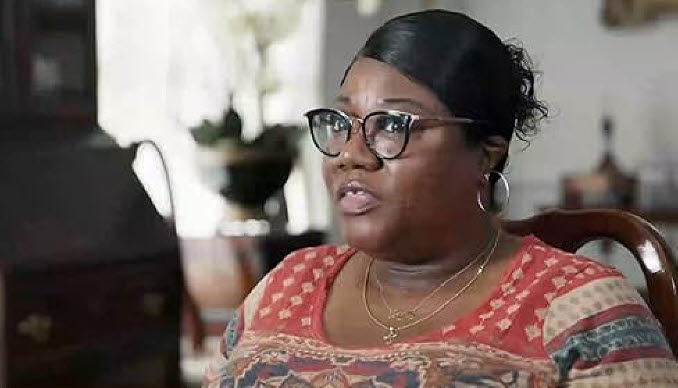Documentary film “Silver Dollar Road”, which was released on Amazon Prime in a few weeks ago, tells the story of how one ordinary African American family has fought for their little precious land in South Carolina for many years. While it is often infuriating to see how much they have endured due to those greedy bastards out there, it is also touching to see how they have tried to stick to their family land as much as possible, and the documentary did a splendid job of presenting their interesting life story.
At first, the documentary introduces us to Gertrude Reels, an old African American woman who has been the matriarch of her family for several decades. She and many other family members of hers have lived on a piece of land located in a little county of South Carolina, which was acquired by one of their ancestors around the early 20th century. They are all certainly proud of how their family has kept their family land mostly intact despite many obstacles including, yes, racism, and the documentary shows us how much their lives have linked with their land in one way or another.
However, things have not been that good for them to say the least since the 1980s. As the surrounding areas were redeveloped step by step, the area owned by the Reels family drew more attention because of its considerable potential for redevelopment, and it was naturally targeted by a local association of land developers eager to covert the area into a lucrative resort spot. Because this change can lead to a much more land tax than before, the Reels family, who incidentally cannot afford to pay that much due to their rather poor economic condition, strongly objected to this change from the beginning, and that consequently led to the long and complicated legal dispute between them and those greedy land developers.
Gertrude and many other family members of hers were certainly determined to fight as much as they could, but their fight was uphill from the very start. For example, their opponent’s lawyers argued that the Reels family had no legal rights on the land at all, and the Reels family were mostly helpless while not getting much help from a series of lawyers hired by them. Only two of these lawyers of theirs are interviewed for the documentary, and one of the family members bitterly reminisces about how one local lawyer virtually swindled lots of money out of the family after giving a false promise to them.
The Reels family were disappointed or frustrated again and again during next several decades, but they had no choice but to keep fighting as usual, as reflected by the two prominent family members. Melvin Davis, one of Gertrude’s sons, has worked as a local fisherman for most of his whole life, and giving up his house and land is certainly the last thing he wants. In case of his brother Licurtis Reels, he cannot possibly imagine living outside his family land just like Melvin, and, above all, he strongly believes that it is his duty to keep the family land as long as he is alive.
And we see how much these two men suffered for protecting their family land. Melvin and Licurtis were sued for not leaving the land in the early 2010s, and to their family’s anger and frustration, they were eventually incarcerated for their ‘crime’ for no less than 7 years. As they respectively recollect how difficult it was for them during that gloomy period, the documentary presents broad but striking sketches depicting their many depressing experiences inside the county prison, and it is evident from them that both of them are still haunted by their despairing hopelessness during that time.
The documentary sharply points out the deep social roots of the systemic racism against not only the Reels Family but also many other local African American people. Snatching the lands from emancipated African American people by any means necessary was pretty common during the late 19th century, and this trend has been actually continued while insidiously disguised by the legal system biased against African American people.
Although the documentary, which is based on Lizzie Presser’s ProPublica/The New Yorker article “Kicked Off The Land”, lags a bit sometimes as juggling many different members of the Reels family, it is clear to us that director/writer Raoul Peck, who was initially asked to be one of the executive producers of the documentary but then decided to direct it after reading Presser’s reporting, cares a lot about his human subjects. While silently angry about their ongoing legal predicament which may end with their immense loss, the documentary also vividly captures their spirit and humanity, and their human moments will linger on your mind for a while after the documentary is over. The family bond among them is palpable especially during a cheerful family meeting shown around the end of the documentary, and you can clearly sense how they may prevail in the end as their pride and dignity are maintained generation by generation.
On the whole, “Silver Dollar Road”, whose title comes from the main road inside the land of the Reels family, is another interesting documentary from Peck, who was Oscar-nominated for his previous documentary “I Am Not Your Negro” (2016) and then gave us HBO miniseries “Exterminate All the Brutes” a few years ago. Although it feels a little milder compared to these two previous works of his, the documentary is often powerful as regarding its human subjects with compassion and empathy, and it is certainly one of the better documentaries of this year. This is indeed their land, and you will never forget them as well as their land.











Pingback: 10 movies of 2023 – and more: Part 2 | Seongyong's Private Place